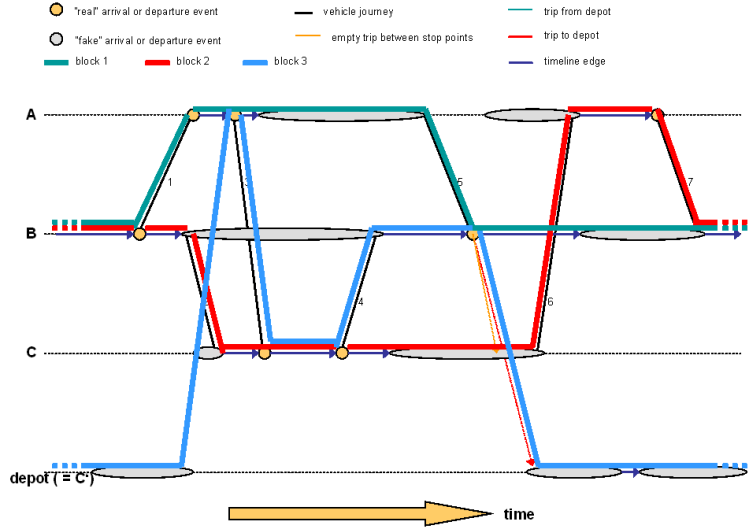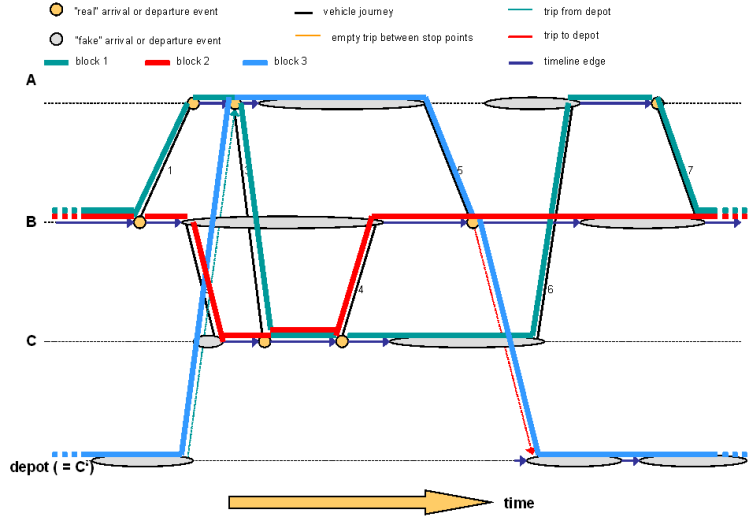The cost-efficient flow in the graph from the previous step can be displayed as blocks in different ways. Regarding the costs, each of these solutions is of equal quality and thus optimal. The decomposition step has to break up the flow into chains in the graph, by allocating an outgoing flow unit at each node. Each generated chain thus corresponds to one block. The Illustration 202 and the Illustration 203 show two possible examples, how the cost-efficient flow can be decomposed into blocks.

Illustration 202: Example 1 for the decomposition into blocks

Illustration 203: Example 2 for the decomposition into blocks
This independent optimization problem can be resolved according to different criteria. In Visum there are two criteria, which can also be combined with each other:
- The structure of the changeovers between vehicle journey sections in the block can be influenced by the following options:
- Differentiated duration of layover: The distribution of the layover times is as irregular as possible, in other words, there are more short and long layovers than average layover times. The aim of this is to obtain long layovers which can be used as maintenance time slots.
- Even duration of layovers: The distribution of the layover times is as even as possible. Such blocks are exceptionally resistant to disturbances.
- Line purity: It is attempted to only run trips of the same line in a block or at least avoid line changes within a block as often as possible.
- No specific requirements: In this dimension, no requirements are set concerning the result.
- Even blocks: For assignment periods of more than one day, the program aims at calculating line blocks that look as similar as possible for all calendar days.
- If closed blocks are generated, the duration of the blocks can also be influenced with the options
- Preferably, build long blocks: Blocks have as many blocking days as possible. This means that the single vehicles traverse multiple line paths. In the most extreme case, all vehicle journeys of a partition are covered by a single line block.
- Preferably, build short blocks: Blocks have as few blocking days as possible.
- No specific requirements: In this dimension, no requirements are set concerning the result.

